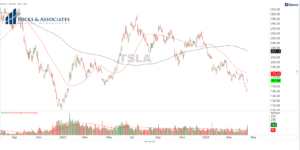By: subSPAC
EXECUTIVE SUMMARY
- Over the last two years, SPACs have emerged as an alternative to the traditional IPO process, especially for those who’ve found it challenging to raise money from the public markets in the past.
- In fact, SPACs have been a great investment vehicle for Space Launch firms, Electric Vehicle Upstarts and even Quantum Computing firms.
- It is surprising then that Italian Luxury Fashion House Zegna, which has a rich 110-year heritage, has decided to take the SPAC route to make its debut in the US markets rather than list in Europe or in Asia like most of its peers.
DETAIL
Over the last two years, SPACs have emerged as an alternative to the traditional IPO process, especially for those who’ve found it challenging to raise money from the public markets in the past. In fact, SPACs have been a great investment vehicle for Space Launch firms, Electric Vehicle Upstarts and even Quantum Computing firms. It is surprising then that Italian Luxury Fashion House Zegna, which has a rich 110-year heritage, has decided to take the SPAC route to make its debut in the US markets rather than list in Europe or in Asia like most of its peers. Zegna is primarily known for its luxury men’s formalwear and fabrics but is looking to shake things up by expanding its offerings to the casual market to attract younger customers. However, with two of the largest luxury markets now heading into a recession, will Zegna’s efforts pay off?
Carving a Niche
Zegna has traditionally been a smaller player when compared with its peers across the Luxury Fashion landscape. However, while brands like LVHM, Prada, and Gucci may dominate multibillion-dollar industries like womenswear, fragrance, or accessories, Zegna has carved a nice niche in the Men’s luxury market. Known for its handcrafted luxury Men Suits, Zegna is also a premier textile maker, supplying materials to competing brands like Tom Ford, Chanel, and Gucci.
Headquartered in Milan, the company is the largest Luxury Menswear by revenue, operating 300 stores across several key markets in the US, Europe, and the Asia Pacific. Luxury Brands are a dime a dozen these days, but what sets Zegna apart from its competitors is its ability to rapidly shift its operations to emerging trends and new customers. Some may argue that the Luxury Industry, as a whole, is predicated on appeasing new customers by being at the forefront of new trends, but Zegna is one step ahead compared to most.
For instance, Zegna was one of the first Luxury brands to identify the growing importance of the Chinese market when it entered the country in 1991. The efforts paid off, with more than 50% of the brands current revenues coming from the region. Similarly, Zegna entered India in the early 2000s, which many consider an important market over the next decade. While many luxury brands struggled to deal with the early phase of the pandemic, Zegna quickly adapted, pivoting from formal menswear to casualwear, which emerged as a clear winner since customers were working from home.
The company’s 2018 acquisition of high-end casualwear brand Thom Browne proved to be a clear winner, with sales accounting for 20% of all revenues at the end of 2021. In addition, Zegna has been investing in its digital initiatives, moving away from traditional stores in recent years. Zegna also recently partnered with Spanish Soccer Giants Real Madrid to provide luxury travel wear in order to appeal to customers across Europe. These initiatives point toward the company’s efforts to win over younger customers and first-time luxury shoppers, who are increasingly becoming a key market. And these efforts seem to be paying off. The company expects to generate close to €2 billion in revenues, 30% higher than in 2019 before the pandemic hit luxury sales.
Luxury Recession
While Zegna has bounced back quickly from the pandemic slum in 2020, some factors poiowards a rough few years for the company ahead. Macroeconomic Headwinds such as the Geopolitical Events in Europe, A Strong Dollar, and the highest inflation in over four decades all point toward signs of a prolonged recession. The first wave of companies to be hit were discount fashion outlets, as the average consumer saw the most impact from the worsening economy. However, recent signs have also pointed to a slowdown across luxury shoppers. Last Week, major supply analysts pointed out that Apple was slashing demand for its newest iPhone lineup, indicating that sales would be flat yearly.
The same sources also noted that China was responsible for the lower-than-expected demand, as smartphone sales are expected to post a double-digit decline. Given the massive importance of the Chinese Consumer to Zegna’s business, the drop in demand will be a worrying sign. Zegna has primarily avoided the weakness in the Chinese consumer in the past due to strong demand from US and European shoppers, but the current crisis could hit the global economy at the same time, leading to a dip in revenues.
Another challenge that Zegna will need to come to grips with is the rapidly evolving fashion trends. Many outlets have been left holding a lot of inventory after over-ordering based on high demand and not accounting for seasonal trends in clothing. For instance, Athletic-leisure clothing saw a dramatic rise in popularity during the pandemic, but retailers have been clearing stock through sales. As most of Zegna’s recent growth has primarily come from its shift into casualwear, a permanent trend shift could hurt the company’s growth efforts.
The company recently raised its revenue guidance to €2 billion ($1.96 billion) in 2022, which is a 30% jump over pre-pandemic levels. Furthermore, the company said it was targetting a profit margin of close to 15%, indicating a bottom line of €300 million ($295 million). However, despite the weakening Euro and challenging operating conditions that could lead to a dip in sales, the company’s stock seems to be trading below fair value compared to competitors like LVHM and Kering. With over $675 million in cash on the balance sheet, the company has sufficient liquidity to weather a recession while also making strategic acquisitions to further boost its product line.
Bottom Line
Italian Luxury Fashion company Zegna Breaks the SPAC Deal convention by having a rich legacy, profitability, and growing customer demand. Zegna has significantly repositioned its brand over the last few years, from a Men’s formalwear brand to one that deals broadly in Men’s luxury. The company’s investments and expansion efforts seem to be paying off, especially amongst its younger customers. There are significant challenges ahead, both with the decline in demand for luxury goods and a buildup in inventories due to a shift in clothing preferences. However, the company has a strong balance sheet with plenty of liquidity, is positioned well for growth, and is trading at a discount to its peers, implying that it could be undervalued.
—
Originally Posted October 3, 2022 – Breaking SPAC Convention
Disclosure: Smartkarma
Smartkarma posts and insights are provided for informational purposes only and shall not be construed as or relied upon in any circumstances as professional, targeted financial or investment advice or be considered to form part of any offer for sale, subscription, solicitation or invitation to buy or subscribe for any securities or financial products. Views expressed in third-party articles are those of the authors and do not necessarily represent the views or opinion of Smartkarma.
Disclosure: Interactive Brokers
Information posted on IBKR Campus that is provided by third-parties does NOT constitute a recommendation that you should contract for the services of that third party. Third-party participants who contribute to IBKR Campus are independent of Interactive Brokers and Interactive Brokers does not make any representations or warranties concerning the services offered, their past or future performance, or the accuracy of the information provided by the third party. Past performance is no guarantee of future results.
This material is from Smartkarma and is being posted with its permission. The views expressed in this material are solely those of the author and/or Smartkarma and Interactive Brokers is not endorsing or recommending any investment or trading discussed in the material. This material is not and should not be construed as an offer to buy or sell any security. It should not be construed as research or investment advice or a recommendation to buy, sell or hold any security or commodity. This material does not and is not intended to take into account the particular financial conditions, investment objectives or requirements of individual customers. Before acting on this material, you should consider whether it is suitable for your particular circumstances and, as necessary, seek professional advice.










![[Gamma] Scalping Please [Gamma] Scalping Please](https://ibkrcampus.com/wp-content/smush-webp/2024/04/tir-featured-8-700x394.jpg.webp)





